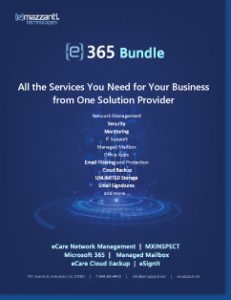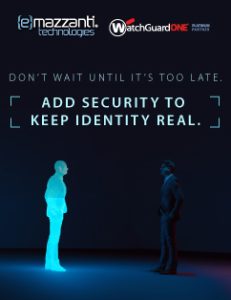|
Social networking: Is your identity at risk?
reprinted with permission from HP
 The total number of users on the social networking site Facebook has now soared above the 200 million mark. Just to put that into perspective: if Facebook were a country, it would be the fifth largest on Earth, after China, India, the U.S. and Indonesia. According to a recent report by ComScore, the number of European Facebook subscribers has grown by 314% over the past year to nearly 100 million users. The total number of users on the social networking site Facebook has now soared above the 200 million mark. Just to put that into perspective: if Facebook were a country, it would be the fifth largest on Earth, after China, India, the U.S. and Indonesia. According to a recent report by ComScore, the number of European Facebook subscribers has grown by 314% over the past year to nearly 100 million users.
Due to the site’s popularity, many organizations (including HP) have recognized Facebook’s value in promoting their products and services. And everyone from British actor Stephen Fry to President Barack Obama has a Facebook page. Unfortunately, many of the aspects that make Facebook and other social networking sites so popular also make them a prime hunting ground for identity thieves, online scam artists and criminals. However, there are a few measures you can and should take to protect yourself.
1. Beware of divulging personal information on your user profile. Many users don’t think twice about entering a wealth of personal information into their user profiles, everything from their address to their date of birth and home phone number. This is exactly the type of information that scammers love to get their hands on, so be sure you’re not posting anything you wouldn’t want a stranger to see.
2. Utilize the site’s privacy settings. Most social networking sites offer different degrees of privacy settings. You can select or limit the people who can view your profile information, and block your name and profile from being indexed in Internet search engines like Google. The best option is to set your profile to “private,” so that only selected people will be able to view it.
3. Use status updates sensibly. It might be tempting to let everyone know that you’re on vacation for two weeks with no access to email but that also lets people know your house or apartment is probably empty, and provides an opening for identity thieves to misuse your information while you’re offline. Similarly, beware of unusual status updates from friends, and always personally confirm any sort of request for money – your friend’s account may just have been hacked!
4. Don’t click on links embedded in e-mail notifications. One popular scammer technique involves sending an authentic-looking e-mail notification that encourages you to go to a link that asks for personal information like passwords and usernames. To protect yourself, always open your browser and input the link manually.
5. Avoid online surveys. While they may seem harmless, some chain surveys are designed to solicit information that is often used as security questions for banking and other institutions. Be wary of answering questions like “What was your first pet’s name?” or “What is your mother’s maiden name?”, and ask yourself if this is really information you need or want to make publicly available.
Because security policies on social networking sites can vary, be sure you’re educated – make sure to read the security information for the sites you use, whether it’s Facebook, Twitter, Orkut, Bebo or MySpace. And try to keep abreast of the latest Internet scams so you can avoid being a victim.
|


 The total number of users on the social networking site Facebook has now soared above the 200 million mark. Just to put that into perspective: if Facebook were a country, it would be the fifth largest on Earth, after China, India, the U.S. and Indonesia. According to a recent report by ComScore, the number of European Facebook subscribers has grown by 314% over the past year to nearly 100 million users.
The total number of users on the social networking site Facebook has now soared above the 200 million mark. Just to put that into perspective: if Facebook were a country, it would be the fifth largest on Earth, after China, India, the U.S. and Indonesia. According to a recent report by ComScore, the number of European Facebook subscribers has grown by 314% over the past year to nearly 100 million users. 










